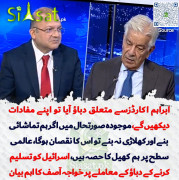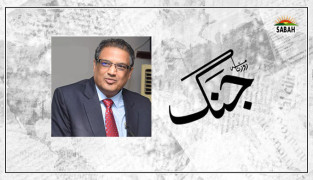Your argument highlights several Quranic verses that you interpret as suggesting the Quran is fully sufficient on its own. While the Quran is indeed complete and perfect, it also emphasises the importance of following the Prophet Muhammad (PBUH) and his teachings, which are preserved in the Hadith. Let's examine your points and provide a counter-perspective.
Quran 6:19 - God's Testimony
Verse: "Say, 'Whose testimony is the greatest?' Say, 'God's. He is the witness between me and you that this Quran has inspired to me, to preach it to you and whomever it reaches. Indeed, you bear witness that there are other gods besides God.' Say, 'I do not testify as you do; there is only one god, and I disown your idolatry.'"
Counter-Argument: This verse emphasises the supremacy of God's testimony and the Quran's divine inspiration. However, it does not negate the importance of the Prophet's teachings. The Quran repeatedly instructs Muslims to follow the Prophet's example and teachings.
- Surah Al-Hashr (59:7): "And whatever the Messenger has given you – take; and what he has forbidden you – refrain from." This verse directly instructs Muslims to follow the Prophet's guidance, which is documented in the Hadith.
Quran 6:38 - Nothing Left Out
Verse: "We did not leave anything out of this book."
Counter-Argument: This verse means that the Quran contains all essential principles for guidance. However, it does not provide detailed instructions for every aspect of life. The Prophet Muhammad (PBUH) was sent to explain and implement these principles, which is why the Quran says:
- Surah An-Nahl (16:44): "And We revealed to you the message that you may make clear to the people what was sent down to them and that they might give thought." The Prophet's explanations and practices, found in the Hadith, are necessary for understanding and applying Quranic teachings.
Quran 7:52 - Fully Detailed Scripture
Verse: "We have given them a scripture that is fully detailed, with knowledge, guidance, and mercy for the people who believe."
Counter-Argument: The Quran is fully detailed in terms of its principles, but the application of these principles often requires further elaboration provided by the Prophet.
- Surah Al-Imran (3:31): "Say, [O Muhammad], 'If you should love Allah, then follow me, so Allah will love you and forgive you your sins. And Allah is Forgiving and Merciful.'" This verse shows the necessity of following the Prophet's example to truly adhere to God's guidance.
Quran 10:37 - Fully Detailed Scripture
Verse: "This Quran could not possibly be authored by other than God. It confirms all previous messages and provides a fully detailed scripture. It is infallible, for it comes from the Lord of the universe."
Counter-Argument: The Quran is indeed infallible and detailed, but it does not negate the need for the Prophet's Sunnah. The Prophet’s role was to demonstrate the Quran’s teachings through his actions and words.
- Surah Al-Ahzab (33:21): "There has certainly been for you in the Messenger of Allah an excellent pattern for anyone whose hope is in Allah and the Last Day and [who] remembers Allah often." This verse emphasizes the Prophet's role as an example to be followed, which includes his sayings and actions recorded in the Hadith.
Quran 12:111 - Confirmation and Details
Verse: "In their history, there is a lesson for those who possess intelligence. This is not fabricated Hadith; this (Quran) confirms all previous scriptures, provides the details of everything, and is a beacon and mercy for those who believe."
Counter-Argument: While this verse highlights the Quran's authenticity and its comprehensive nature, it does not dismiss the importance of Hadith. The Prophet’s sayings and actions are crucial for interpreting and implementing the Quranic verses.
- Surah An-Nisa (4:59): "O you who have believed, obey Allah and obey the Messenger and those in authority among you." This verse clearly commands Muslims to obey the Prophet, which is facilitated through the Hadith.
The Quran emphasises the importance of following the Prophet Muhammad (PBUH) and his teachings alongside the Quranic revelations. The Hadith complements the Quran by providing practical examples and detailed explanations of its principles. Rejecting the Hadith means ignoring the comprehensive guidance provided by Allah through His Messenger, which the Quran itself advocates.






























